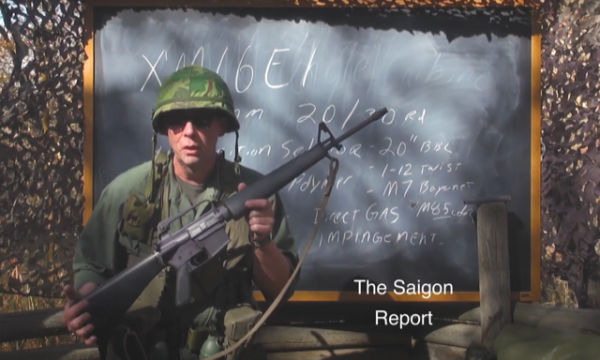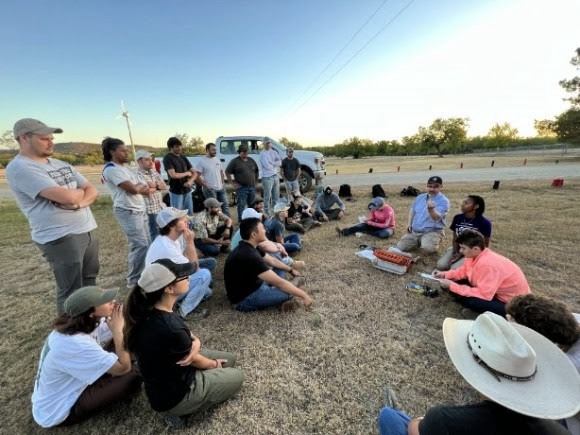DNR’s Academy of Natural Resources gives teachers valuable “been there, done that” experience
Given a choice, the Michigan Department of Natural Resources would enroll every student in the state into a class on natural resources. Since that’s not exactly practical, DNR educators have come up with a more feasible alternative: educate the educators.
The DNR’s Academy of Natural Resources, now in its seventh year, enrolls teachers into a week-long crash course on natural resources. The idea is to provide the teachers with a broad overview of natural resources that they can use in their classrooms.
“We have 50 to 60 teachers enrolled in the academy each summer, and that translates into potentially reaching thousands of students,” said Kevin Frailey, who leads the DNR’s education efforts. “We do a lot of short-term education programs with teachers on a regular basis, but research shows that the more times we make contact with these teachers, the more information they’ll retain.
“The academy is a unique chance to totally immerse teachers in natural resources for a week and really maximize our efforts and their learning opportunities.”
Teachers say it’s a strategy that works. Cindy Fitzwilliams-Heck, a professor at Ferris State University who first attended the academy as a student, returned to the academy this summer to obtain focus group feedback from the teachers attending the program.
“The response is all positive,” she said. “The Academy of Natural Resources has really opened their eyes about natural resources and what the DNR does. And they’re going on to sharing that knowledge in the classroom and elsewhere. They’re eager to discuss it and they’ve used a lot of the material.”
The knowledge each teacher gains at the academy varies depending on which section they choose to attend. This year, the academy offered three different sections: Forests, Fields and Fins; STEM from Nature (STEM refers to science, technology, engineering and math); and MEECS (Michigan Environmental Education Curriculum Support).
The three sections are among seven total sections offered by the academy on a rotating basis. Other section topics include Nature Quest, which is an introduction to nature; Wee Ones (a program for early childhood instructors); and Teachers into the Wild, which focuses on outdoor skills, such as archery, canoeing and fishing.
By rotating the topics and offering just a few choices each year the teachers are better able to focus intensively on a specific topic during the week, and are able to return for several years without taking the same class twice, Frailey said.
The “F program” (as Forests, Fields and Fins is called within the program) features sections by the DNR’s Law Enforcement Division, Wildlife and Fisheries Divisions, Forest Resources Division, plus an introduction into geology. The DNR divisions try to give teachers a one-day overview of what they do in the field, along with information about how license fees fund this work and how the Department functions within state government.
For example, Fisheries Division spent one session with teachers on Higgins Lake, demonstrating the use of trap nets and gill nets for fish surveying and another on the Au Sable River, using electro-shocking equipment to survey fish populations.
In each case, the teachers were given the opportunity to assist: They could help raise nets, remove fish or net fish in the electro-shocking demonstration.
The field demonstrations are a perennial favorite for the teachers, who say the hands-on experience helps them better explain to students how fish and wildlife are managed by using their own real-life anecdotes gleaned from the academy.
Dave Polley, an eighth-grade science at Beach Middle School in Chelsea, said the sections suited him well, both professionally and personally.
“We teach an ecology unit and I’ve struggled with it – how to be more hands-on, how to be more relevant to the kids,” he said. “[The field experience has] been a good thing; it’s given me some ideas. And it’s right up my alley personally; I’m a sportsman, a hunter/fisherman.”
Polley said he would “absolutely” recommend the academy to other science teachers.
Carrie Wenta, who teaches high school biology and environmental science in North Branch, said she also found the field sessions valuable.
“Now I can go into the classroom and tell the kids, ‘I’ve been there, I’ve done it and I have stories to tell about it.’”
And that, said Frailey, is the academy’s ultimate goal.
“There are a lot of teachers who teach ecology programs,” Frailey said. “They understand nature, but they don’t necessarily get into management. So this gives us a chance to talk about management – what we do to make these systems work.
“And from the feedback we’ve received, it’s evident that what teachers are learning here translates into improved learning about the environment and natural resources for their students. A true trickle-down effect.”
The Academy of Natural Resources is held each summer at the Ralph A. MacMullen Conference Center at Higgins Lake. While there is a fee to enroll in the academy, teachers can be sponsored by their school district and financial aid is also available to help cover the cost, thanks to an annual donation of $10,000 from the Novi Chapter of Safari Club International.
In return for attending the academy, teachers can either satisfy required continuing education requirements or choose to earn graduate credits in education through Ferris State University.
For information on enrolling in a future academy and to learn more about the DNR’s educational programming, visit www.michigan.gov/anr.





